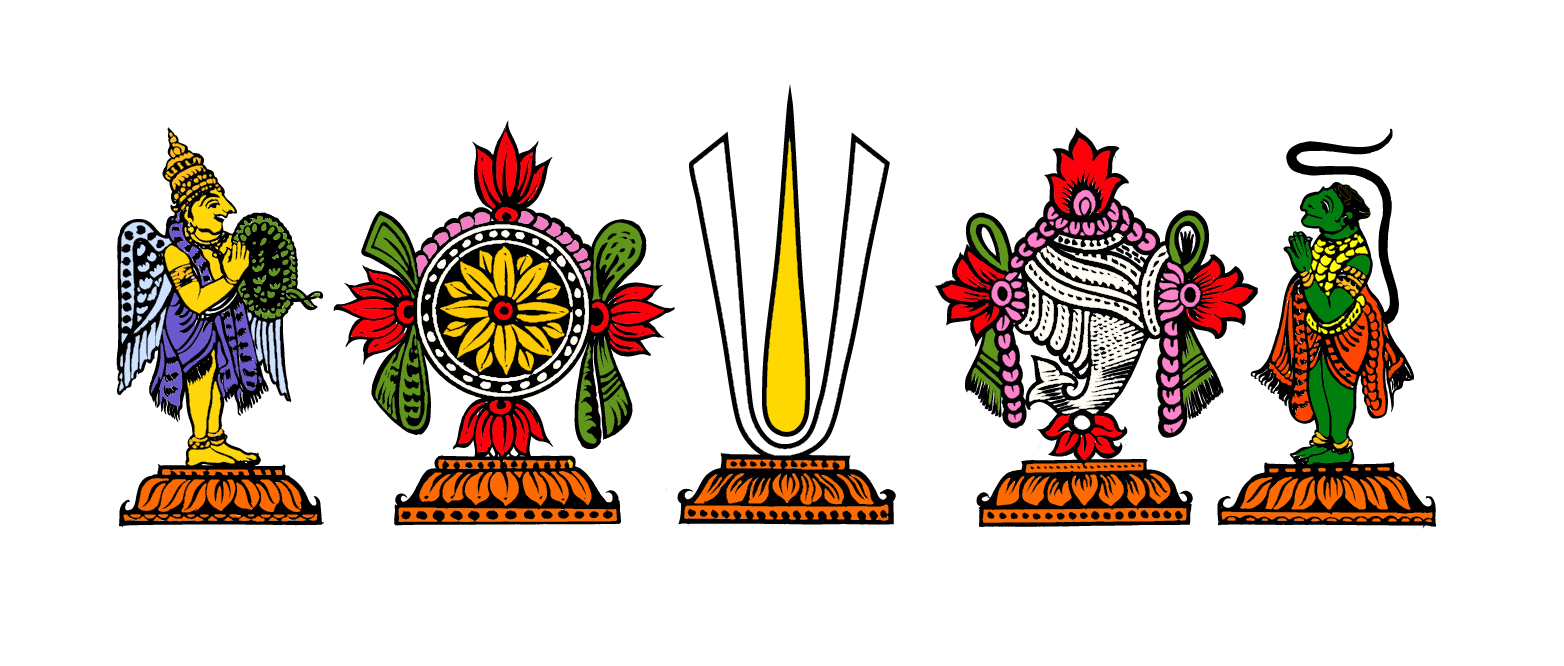Originally published by Desika Vidya
Except a few pagan religions, all theological texts in the world speak about a kind and benevolent supreme Being who responds to human appeals and helps out people in distress. The Vedas are no exception. In fact, the Upanishads, supported by the Epics and Puranas, tell us that the supreme Person, Sriman Narayana, possessing countless auspicious attributes and totally free from all taints and evil qualities, is easily approachable and provides relief suited to our needs. He is inherently compassionate but impartial in His dealings with all, whether they are celestials or human beings.1 His punishment is also tempered with mercy. The troubles we face in our lives are of our own making, due to our continuous contravention of the laws of truth and order (satyam and ritam). Yet, He forgives our trespasses on most occasions – when we repent or take expiatory measures. Besides, His Consort Goddess Sri is ever present with Him and intercedes on our behalf to ensure His forgiveness. He abides by Her words, as He too is generally kind-hearted towards all.
However, there is a class of people whom He does not like, which He spells out in the Gita. They are the pompous, perversely arrogant, rude, angry and conceited persons.2 Elaborating, in twelve verses, on how they behave and destroy the fabric of society,3 He finally declares in a verse that He throws them into a continuous cycle of births and deaths and in the wombs of cruel creatures. Since this verse merits our serious attention, it is given below, with explanations on the basis of our poorvacharyas’ commentaries.
taan aham dvishatah krooraan samsaareshu naraadhamaan, kshipaami ajasram asubhaan aasureeshu eva yonishu.
In an earlier verse,4 Bhagavan speaks about those who do not seek His help even in distress. There are four types of such people, viz. (i) those who remain unaware of His greatness, such as those who equate Him with other deities, or declare that He is non-existent, or identify themselves with their bodies and pursue sensual pleasures (Bhagavan declares them ‘fools’), (ii) those who are aware of His existence, but keep away from Him, not knowing His affability, (iii) those who know His existence but deny His form and attributes, due to the influence of illusionists, and (iv) those who are of demoniac nature. Besides, there are cruel people who delight in inflicting pain on others for no reason whatsoever. In the present verse, Bhagavan affirms His intention to keep all these types of people in the clutches of eternal worldly life.
In addition, He condemns such souls to existences such as predatory or parasitic beasts and reptiles, which only perpetuate their own kind. There would be no respite for them from evil tendencies.
Let us pause and think
In the light of the above remarks, we can re-examine ourselves to find out whether at all we come under His ‘area of displeasure’. As long as we are not pompous, rude or arrogant, angry or conceited, we would not fall in that dreaded circle. However, we are not as pure as the driven snow either. We have our faults, in fact, too many of them. We are conceited about our pedigree and learning, our power and position. We are not sympathetic towards our fellow beings. We are fond of riches, but not large-hearted enough to share them with our needy brethren. We try to grab others’ belongings by any means. Still, we consider ourselves as devotees of Bhagavan and worship Him in our homes. Bhagavan, too, does not ‘detest’ us, but it is a moot point whether He loves us as He would a Dhruva or a Prahlada. To deserve this full attention from Him, it is necessary to feel His presence every moment of our lives and dedicate all our actions to Him. What we need to do is always to remain in a state of ‘mental surrender’ to Him, crediting Him for all the prosperity around us, repenting for our deviations from the prescribed path and desisting from wrongful words or actions in future.
Two instances can be quoted to show that Bhagavan bestows all prosperity on His true devotees. Vibheeshana forsook his close kith and kin and all his possessions and sought the feet of Sri Rama.5 But he got back everything, more glorious than ever. When pressed by Lord Nrsimha to ask for favours, Prahlada replied, “Lord, do not tempt me with boons….. If at all You wish to bless me, may it be that no more desires will spring in my heart. All that I want is to serve You forever”. Bhagavan blessed him with royal luxuries in this world and eternal communion with Him in Srivaikuntha.6 Hence, in order to figure in His circle of true devotees, we ourselves must take steps to eradicate the aforesaid evil tendencies.
The following few lines, in verse form, would indicate the way to shape our lives in the days to come so as to remain His true devotee.
With but a single thought That He is my Lord and Master, Repenting all the while For my selfish actions past, Vowing afresh to offer Him The fruits of my future deeds, Rendering Him my sincere thanks For all His munificence,
Seeking His grace and guidance In times of serious crisis, Staying away from sins and evils In thought, word and deed, I seek the help of Goddess Sri To clasp His lotus Feet And serve Them well in the days to come Either here or in the hereafter.
1 Bhagavad Gita IX.29: samo’ham sarvabhooteshu 2 Ibid. XVI.4: dambho darpo atimaanascha krodhah paarushyameva cha 3 Ibid. XVI.7-18 4 Ibid. IV.15 5 Srimad Ramayana – Yuddhakanda 17.15: tyaktvaa putraamscha daaraamscha 6 Srimad Bhagavatam VII.10.2, 7, 11, 13


